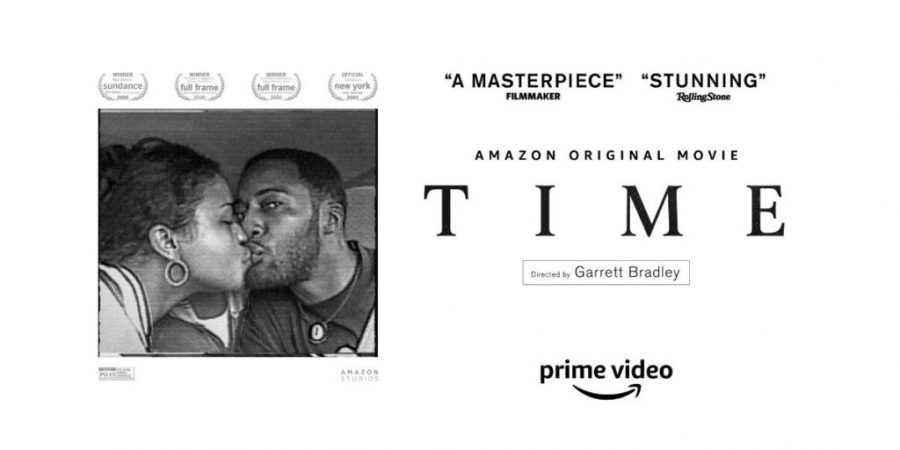“Time”: A Film Review
November 16, 2020
Most years, documentaries are overlooked, but with many film studios either postponing or canceling film releases, a spot has cleared in the popular imagination for these films.
Among this year’s more notable documentaries is Time, which was released on Amazon Prime on October 16, 2020.
In this year of anxiety, both about COVID-19 and politics, the people of the United States have renewed the discussion over America’s criminal justice system. So, it is only fitting that Time deals with the subject.
Time deals with the impacts of the system on the people in it and is told through the lens of a single family. The Richardson’s, who are African American.
The film, apart from a few scenes, is narrated by Sibil Richardson, otherwise known as Fox Rich. She is the wife of Rob G. Richardson, an inmate at the Louisiana State Penitentiary.
At the heart of the film is Fox Rich’s fight to get her husband released from prison.
Despite what you might be thinking, this is not a film about an innocent person having been sent away for a crime that they didn’t commit. In fact, Richardson, and his wife both committed the crime for which he was sent to prison.
The reason he was sent to prison was that they robbed a credit union in Grambling, Louisiana. Fox was sent to prison, as well, but was released after three years due to accepting a plea bargain. Richardson didn’t accept a plea bargain and was sentenced to 60 years in prison.
Unlike other documentaries about prisoners, this film stays completely away from the prison and only shows the lives of the Richardson family members on the outside. In fact, Richardson is only on screen for a few minutes.
The fact that the audience knows the Richardson’s are guilty doesn’t change the fact that their story is a compelling tale of love, resilience, and hope.
Garrett Bradley, the director of the documentary, empathetically explores what it means to have a father and husband in prison. When the crime was committed, Fox was pregnant with twins and already had a few children. The children have not seen their father outside of prison in 20 years when we are introduced to them in the film. The twins, Justus and Freedom, have never had their father at home and spent their entire childhoods with him in prison.
Despite not having their father around, the Richardson children are all successful and several of those featured in the film are in college. The absence of Rob G. Richardson is striking just the same, especially in one scene where we are shown a cardboard cutout of Richardson in the family’s home. A reminder of their father, but also a reminder of the fact that they don’t really have him.
Throughout the film, Fox Rich is seen giving talks to various groups about her family’s predicament and how she gets through it. When not giving talks, she is seen interacting with her children or calling the offices of judges who are hearing Richardson’s case for resentencing purposes. She rarely gets an answer to any of her questions, but she keeps her cool, nonetheless.
In one scene, she finally lets out some of her anger and tells the person behind the camera about how despite every setback and frustration, it will all work out in the end.
Rich’s optimism is refreshing in a film about such a heavy and emotional topic.
The idea of hope very much grounds the film and keeps it from just being another tragic tale from America’s criminal justice system.
When watching the film, I was taken back by the stunning black and white cinematography which adds to the idea of time being ever-present for a family both stuck in past due to Richardson’s incarceration and moving forward as they all get older.
There are several instances of time being discussed in the film, but the one that will stick me with me is one that takes place during a phone call between Richardson and Fox Rich. Richardson mentions some pecan orchards at the prison and recollects about how they planted those when he first got there and now, they are all grown up.
The passage of time, something that no one can stop or reclaim.
Bradley’s film ends in a way that is both beautiful and haunting as we see time being “reclaimed” through the Richardson’s home video footage, which was featured towards the beginning of the film, being run in reverse.
Time captures something so true about life itself, while also dealing with a very specific topic, and for this reason, it is a documentary that everyone can relate to.
With awards season coming up in a few months, it would not be a surprise to see this documentary to be up for consideration.

